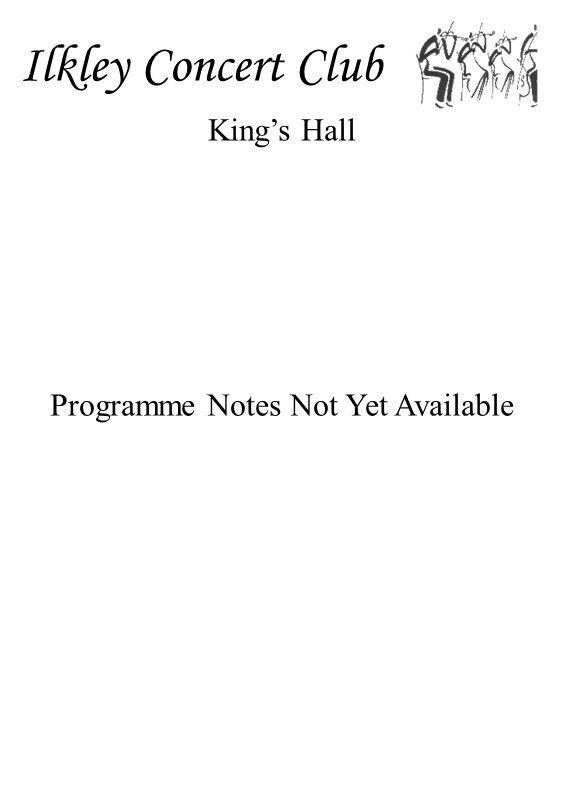REVIEWS
BRODSKY STRING QUARTET

Wednesday 10th February 2016
Borodin – Scherzo in D major
Shostakovich – String Quartet No.2 in A major, Op.68
Beethoven – String Quartet in C# minor, Op.131
Since its formation in 1972, the Brodsky String Quartet has been at the very forefront of the international chamber music scene. Starting life in Middlesbrough, they were the first ever string quartet to arrive ready-formed at the Royal Northern College of Music, changing their name to Brodsky after the Russian violinist who was such an inspiration to musical life in Manchester in the early twentieth century.
The Brodsky Quartet will now play Beethoven's String Quartet in C# minor, Op.131, instead of Beethoven's Rasumovsky Quartet, Op.59/2. The first half is Russian: a furious scherzo from Borodin with a lyrical central section is followed by Shostakovich's second quartet of 1944 with its song-like slow movement, waltz-inspired scherzo and variation form finale. In the second half we are treated to Beethoven's C# minor quartet, acknowledged to be one of the greatest ever composed.
REVIEW BY CHRIS SKIDMORE
A return visit worth waiting for at the Ilkley Concert Club
If the return of the Brodsky Quartet to play again for Ilkley Concert Club after 18 years was in itself a matter for celebration, the sparkling performance heard by a packed King’s Hall on Wednesday was certainly an occasion for breaking out the champagne!
Read MoreWith their first piece the quartet did just that. The scherzo that Borodin wrote, incredibly, for a group of amateur string players in 1890s St Petersburg, was given a fizzing performance without sacrificing any of the lyricism of the viola melody in the trio section. This unfamiliar work – ‘extraordinary champagne music’ in violist Paul Cassidy’s words – made an entrancing start to the concert.
The performance of the Shostakovich second quartet that followed was every bit as exciting, indeed I sat mesmerised by the Brodskys’ playing. The first violin, Daniel Rowland, was completely on top of the virtuoso demands of the first two movements, matched fully by the other players. Indeed the restrained chords of his fellows only made the anguished lament of the second movement more effective. The spectral waltz of the third movement became almost a tarantella before the theme and variations of the fourth brought the quartet to an emphatic conclusion.
It is not possible for the Beethoven Op. 131 quartet to be an anticlimax and here it received a well-balanced and characterful performance. The playing was less dramatic perhaps but wonderfully integrated between the parts, with both the sadness of the first movement and the childish fun of the fifth given their due weight. The variety of tone was splendidly achieved with the rapt pianissimos particularly magical.
The Brodskys are well known for playing standing with the cello on a raised platform and this, with the partially-dimmed lighting, made a striking picture. But the quartet is not one for empty gestures and the players, while retaining their individuality, place all their artistry and showmanship at the service of the music. In the end this is what made this concert such a magnificent experience.
C.J.S.
Recommended Recordings
by RAYMOND WAUD
Borodin
I have been unable to find a current recording of the Scherzo in D, but there are still some copies available via the internet of a budget price ASV disc – CD QS 6229. The Dante Quartet play short pieces by various Russian composers, including the Borodin.
Read MoreShostakovich
An excellent full price Hyperion CD (CDA 67987), has the String Quartet No.2 and the Piano Quintet performed by the Takács Quartet and Marc-André Hamelin (piano).
Alternatively, if you would like to sample the Brodsky Quartet’s work from earlier in their career (1989), a complete set of the Shostakovich Quartets is available on Teldec 2564 60867-2 (6 CDs for the price of 1 full price disc).
Beethoven
I have always admired the Quartetto Italiano’s approach to the late Beethoven Quartets, and their recording of Op. 131 and Op. 132 is available on a budget price 2 CD set from Decca 454 712 2. The analogue recordings have been re-mastered well and the quality is very good. An excellent alternative is to buy the whole set of Beethoven Quartets performed by the Tokyo String Quartet on RCA/Sony 886919 75782 (9 CDs for the price of 1 full price disc). The digital recording quality is very fine, and the performances are superb.
Raymond Waud.

